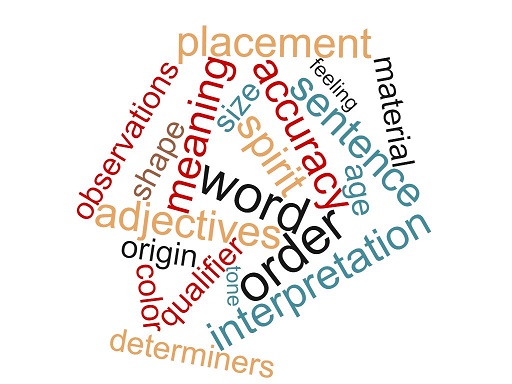
In English, the word order plays an important role because it shows the relationships between parts in the sentence (subject, object, etc.). Sentence “Yesterday a dinner for children cooked mother” sounds a little weird. However, Ukrainian word order is very flexible. The relationships between parts of the Ukrainian sentence are shown by cases. So the above sentence with the same words order in Ukrainian is usual and correct:
English: Mom cooked dinner for the kids yesterday.
Ukrainian: Вчора вечерю для дітей готувала мама.
Are the cases so important?
Look at one more example:
We want to describe the situation when Anna bought a book for a friend. And we translate Ukrainian & Russian sentence into English:
- “Anna bought a friend a book.” (Here we wouldn’t know that Anna bought the book for a friend)
- “A friend bought Anna a book.” (In this sentence, Anna received the book from her friend)
So this system wouldn’t work in English. But Ukrainian & Russian use cases. Which means that every noun changes its ending, depending on what function it has in the sentence:
English: Anna bought a book for a friend
Ukrainian: Анна купила книгу подрузі.
Ukrainian: Анна купила подрузі книгу.
Ukrainian: Подрузі Анна купила книгу.
“Book” is the object so it is in Accusative case, “friend” receives something so it is in Dative case.
Such flexible word order can confuse students, but also makes things simpler: It’s Easy to Start a Sentence. You don’t need to form the whole sentence before you start to pronounce it. If you have a general idea of what you’d like to say, then you can just start your sentence with any of the words. You can add words while you’re speaking.
Are there any rules?
‘Free word order’ means that subject, object and verb are not arranged in a certain order. It does not mean that you can put words in any order. It just means that grammatic role (subject/object/verb) doesn’t affect the word order.
Some words have a fixed position in the sentence.
- Adjectives usually precede the noun they describe
English: big house
Ukrainian: великий дім
- Other noun modifiers usually follow the noun:
English: sister’s book, an article in the magazine
Ukrainian: книга сестри, стаття в журналі
- Objects usually follow the verb:
English: I see a book
Ukrainian: я бачу книгу
- But when object is a pronoun, it usually precedes the verb:
English: I understand him
Ukrainian: я його розумію
New information towards the end of the sentence
Ukrainian & Russian usually places topic (known information) at the beginning of the sentence, and rheme (new information) at the end. Compare:
This sentence tells us something about the table: the fact that my books are there. Table is a known information, books is new information
English: My books are on the table (What is on the table is my books)
Ukrainian: На столі мої книги
Here we know that you have books. Table is new information
English: My books are on the table
Ukrainian: Мої книги на столі
What about questions?
In Ukrainian & Russian we make questions with intonation and question mark without any special changing of words order. However, question words normally come at the beginning of the sentence.
English:
Were your books on the table?
Where are your books? – My books are on the table.
Who plays in the park? – Children play in the park.
Ukrainian:
Твої книги були на столі?
Де твої книги? – Мої книги на столі.
Хто грає в парку? – У парку грають діти.

This course course will help you to start learning Ukrainian in easy and convenient way. You will learn how to read in Ukrainian and understand spoken language, learn basic grammar, vocabulary and useful phrases.
All materials (vocabulary lists, grammar explanation, texts, dialogues, audios, tests and practice exercises with answers) are on our website, so you can access them whenever you want.
